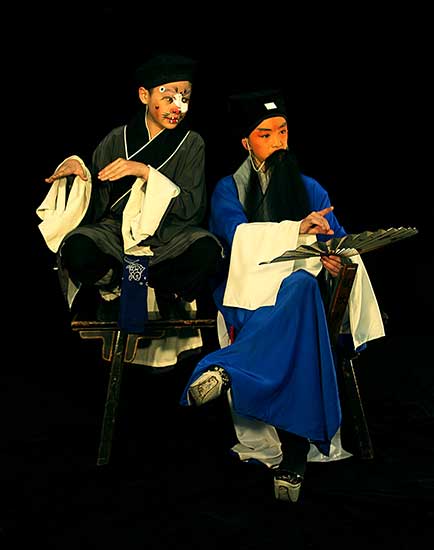
It is unlikely that Zhang Shizheng will forget the spring of 1956.
As a teenage actor of Zhe-jiang Kunqu Opera Troupe, he made his first trip from the country's east to Beijing along with the troupe's other performers, including Kunqu Opera veterans Zhou Chuanying and Wang Chuansong. They were going to debut Fifteen Strings of Coins, a classic of the local opera, in the capital.
With its roots in Suzhou, in East China's Jiangsu province, Kunqu is among the country's earliest operas. It combines singing, dancing and acting.
Fifteen Strings of Coins tells the story of a respected legal figure in ancient China, who corrects a previously misjudged murder case. The show's Beijing premiere was a success.
Staged dozens of times in the city, it was attended by top leaders Mao Zedong and Zhou Enlai, and some 70,000 people during a 20-day stay.
The troupe also toured other parts of the country with nearly 100 shows viewed by another 140,000 people that year.
Zhang was an apprentice of Zhou, who, along with five other Kunqu masters, remade Fifteen Strings of Coins in 1955 and established Zhejiang Kunqu Opera Troupe the following year.
Now, in his 70s, Zhang can clearly recall his first trip to Beijing.
"It was a life-changing experience for me. Although I performed a small role in the show then, I couldn't fall asleep on the train to Beijing because I was too excited and nervous," he says.
"After the tour, my teacher (Zhou) passed his role to me and taught me how to play it from scratch. He wanted me to carry on the legacy."
To celebrate the contemporary show's 60th year, Fifteen Strings of Coins will return to Beijing on May 12. The production will gather generations of Kunqu artists from three established troupes - Zhejiang Kunqu Opera Troupe, Suzhou Kunqu Opera Troupe and Shanghai Kunqu Opera Troupe.
Artists from the three troupes have "witnessed history in the making" with the recreation of the Kunqu masterpiece, says Zhang.


















































